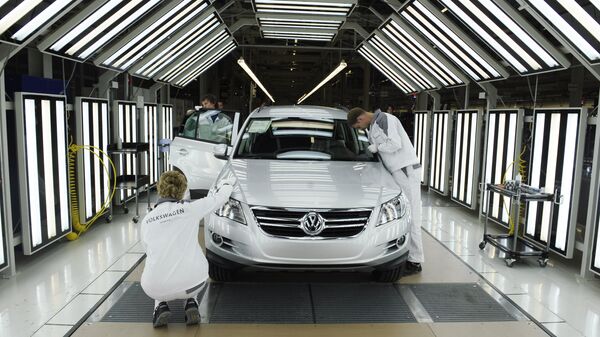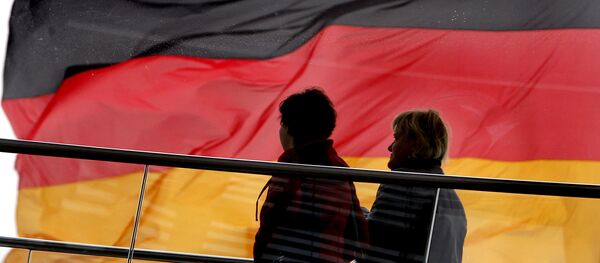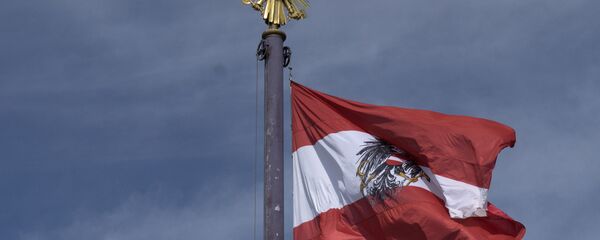Merck has been bypassing anti-Russian sanctions, cooperating with Russian companies Farmstandart and Nanotek in producing medicines in Russia. In addition, the company is investing in personnel training and new production equipment.
Due to sanctions and the worsening economic environment, German exports to Russia dropped by €8.5 billion, to nearly €21 billion. Among the most affected sectors were the automotive industry, engineering industry, energy, electronics as well as the agricultural industry. Around 400 of 6,000 German companies working in Russia have left the market.
At the same time, according to a recent report by EY, 80 percent of German companies do not plan to leave the Russian market. Some companies are acting like Merck, starting or expanding production in Russia. Among them are such companies as GEA, Bionorica, Siemens, and Claas.
"For German companies, Russia’s is the biggest market in Europe. It needs modernization but it also has a great consumer capacity," Vladimir Nikitenko, deputy chair of the Russian-German Trade Chamber, was quoted as saying by WirtschaftsWoche Heute.
The EU imposed sanctions against Russia in July 2014 over Moscow’s alleged involvement in the Ukrainian crisis. Russia has denied the allegations. In March 2015, Brussels said the sanctions would be lifted if the Minsk agreements were implemented. Currently, the sanctions are in place until July 31, 2016, but may be prolonged. In response, Moscow introduced a food import ban until late-August 2016. According to the Russian-German Trade Chamber, German companies do not expect that sanctions will soon be lifted.
German agricultural producers have long been working in Russia since part of their imports to Russia was banned back in 2012. In 2012-2014, Russia sent veterinary commissions to Germany and other EU countries to find violations of sanitary norms. As a result, almost all German dairy and meat producers were banned from exporting their products to Russia.
Companies like Merck which have no production lines in Russia will continue to cooperate with their Russian partners.
Technology company GEA Group has launched joint production with Russian companies in Klimovsk, Kolomna and Voronezh.
Volkswagen has its own factory in Kaluga (190 kilometers from Moscow) and is expanding production in Russia. According to Daimler CEO Dieter Zetsche, the company also plans to start production in Russia. Siemens has its own factory near St. Petersburg, producing gas turbines.
"Now, it’s time for foreign companies to localize production in Russia. Due to the weakening ruble production in Russia has become less costly, and exports from Russia are more profitable now. In addition, Russian needs new technologies from German companies," Anton Kalin, chairman the chamber’s localization committee, said.




